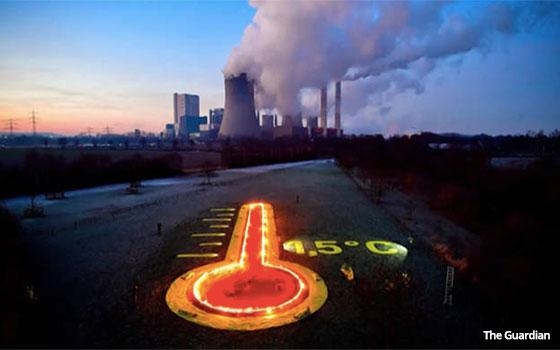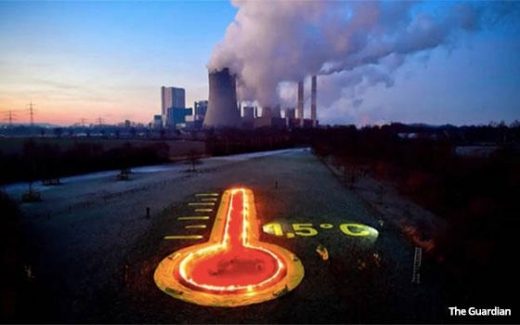Media Urged To Improve, Rename Climate Coverage
Media Urged To Improve, Rename Climate Coverage

Joined by The Guardian, the “Covering Climate Now” project launched this week, aiming to bring together journalists and news outlets to revise how the topic is covered.
“We see ourselves as convening and informing a conversation that journalists need to have with each other and the public we serve about how to do justice to the climate story at this decisive historic moment,” stated Kyle Pope, editor-publisher of CJR.
A white paper published by Pope and Mark Hertsgaard, environment correspondent for The Nation, urged the media to do a better job of covering climate change.
“Newsroom managers have failed to see the climate crisis as fundamental, all-encompassing and worthy of attention from every journalist on their payrolls,” they wrote.
Covering Climate Now was created at a conference in April at the Columbia Graduate School of Journalism.
It was inspired by a column from Washington Post media columnist Margaret Sullivan published last October, after UN climate scientists warned that carbon emissions needed to be halved in the next 12 years or the world would suffer dire consequences.
Sullivan called for “radical change” in U.S. media coverage. “This subject must be kept front and center,” she wrote.
The Schumann Media Center has pledged $1 million to fund the first year of the project.
Covering Climate Now aims to bring journalists together at events around the world and online, via a new vertical on the CJR and The Nation websites.
“In these and other venues, we hope journalists and others will talk about, report on, analyze, and debate how news outlets should cover the rapidly uncoiling climate crisis and its solutions,” reads a page dedicated to explaining Covering Climate Now.
The initiative will highlight the best coverage being done and find ways to encourage more of it.
“Above all, we want to break the climate silence that still pervades too much of the news media,” the page reads.
In September, to coincide with a United Nations summit being held in New York dedicated to the issue of limiting the global temperature rise, the Covering Climate Now project will commit one week of focused coverage on climate change.
Also this week, progressive nonprofit think tank Public Citizen found that fewer than 10% of articles in the top 50 U.S. subscription newspapers in 2018 used the words “crisis” or “emergency” when referring to climate change.
The Guardian updated its style guide so going forward, its journalists use the terms “climate emergency,” “climate crisis” or “climate breakdown” instead of “climate change.”
The phrase “climate change,” noted editor-in-chief Katharine Viner, “sounds rather passive and gentle when what scientists are talking about is a catastrophe for humanity.”
“We call on the U.S. media to do the same,” stated David Arkush, managing director of Public Citizen’s Climate Program. “When news outlets consistently fail to use language that conveys climate change is a crisis or emergency, they unwittingly put a heavy thumb on the scale in favor of complacency and inaction.”
He added: “It’s past time for the media to call the climate emergency what it is – and to cover it with the regularity, focus and depth merited by an urgent, existential crisis.”
(23)


